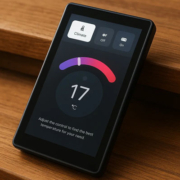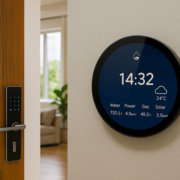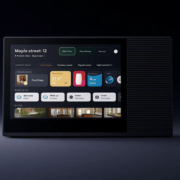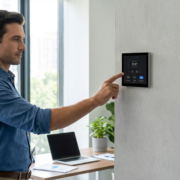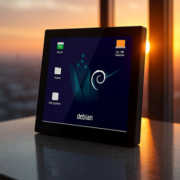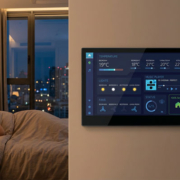What is intelligent automation system?
As industries and homes alike embrace digital transformation, the concept of intelligent automation systems is rapidly reshaping how we work, live, and interact with technology. Combining the power of automation, artificial intelligence (AI), and data analytics, intelligent automation systems go far beyond traditional automation by learning, adapting, and making decisions in real time.
What is an Intelligent Automation System?
An intelligent automation system is a sophisticated technological solution that integrates automation tools, machine learning algorithms, AI, and sensor-based control systems to manage and optimize complex processes with minimal human intervention. Unlike basic automation—which follows fixed, rule-based workflows—intelligent automation can:
- Learn from historical data
- Make predictive decisions
- Adapt to real-time conditions
- Optimize operations dynamically
These systems are widely used in various industries, including smart homes, manufacturing, logistics, healthcare, and commercial buildings.
Key Components of an Intelligent Automation System
To function effectively, intelligent automation systems rely on a combination of advanced technologies:
1. Smart Sensors and IoT Devices
These collect real-time data (e.g., temperature, movement, humidity, energy consumption) and feed it into the system.
2. Machine Learning Algorithms
ML models analyze the data, detect patterns, and make predictions or recommendations—such as adjusting climate control based on usage behavior.
3. AI Decision Engines
These interpret data insights and execute actions accordingly. For example, in a smart home, the AI might decide to close the blinds, adjust lighting, and reduce air conditioning to save energy.
4. Smart Control Panels
Centralized touchscreens like Portworld’s 4-inch and 5-inch panels serve as the user interface for managing the system. These panels can process complex commands, support custom automation flows, and provide real-time feedback.
5. Connectivity Infrastructure
Using Wi-Fi, Zigbee, Z-Wave, or PoE, the devices and control panels stay interconnected and synchronized with cloud or edge computing systems.
How Does Intelligent Automation Work?
Let’s consider an example in a smart home environment:
-
Data Collection: Motion sensors, smart thermostats, and cameras collect environmental data.
-
AI Processing: The system identifies that the homeowner is away, energy consumption is high, and the weather is changing.
-
Automated Decision: AI turns off unnecessary devices, adjusts HVAC settings, and locks the doors.
-
User Interface: The homeowner receives a notification and can override the automation via a Portworld smart control panel or mobile app.
This intelligent decision-making process occurs continually and improves over time as the system learns from user habits.
Benefits of Intelligent Automation Systems
Whether in residential or commercial applications, intelligent automation systems offer multiple advantages:
- Operational Efficiency: Automate complex tasks and reduce manual workload.
- Cost Savings: Optimize energy use and resource management.
- Scalability: Easily expand and adapt to future technologies or changing needs.
- Enhanced User Experience: Personalize environments automatically for greater comfort and productivity.
- Predictive Maintenance: Identify issues before they cause failures or disruptions.
Portworld’s Role in Intelligent Automation
Portworld is at the forefront of smart automation innovation, offering highly customizable Android-based smart control panels that integrate seamlessly with intelligent systems.
Why Choose Portworld for Intelligent Automation?
- Advanced User Interface: 4-inch & 5-inch touchscreen panels with modern UX
- Customizable SDKs: Build your own smart applications
- PoE & Zigbee Support: Flexible connectivity for industrial or home environments
- AI-Ready Hardware: Designed to support intelligent decision-making systems
- CKD/SKD Support: Ideal for global integrators and manufacturers
Whether you’re building a smart residential project or an enterprise-grade automation platform, Portworld enables your system to be smarter, faster, and more adaptive.
Real-World Applications of Intelligent Automation Systems
1. Smart Buildings
Automatically adjust lighting, temperature, and ventilation to optimize energy and comfort based on occupancy.
2. Healthcare Facilities
Monitor patient vitals, automate medical alerts, and manage smart lighting and HVAC in hospital rooms.
3. Industrial Automation
Use AI and sensors to maintain machinery, detect anomalies, and prevent equipment failure.
4. Smart Home Automation
Control all devices via a centralized panel—lights, blinds, climate, security—with intelligent routines and scheduling.
Future Trends in Intelligent Automation
The evolution of intelligent automation systems is closely tied to advancements in:
- Edge AI computing
- Voice and gesture control
- 5G connectivity for real-time processing
- Digital twins for predictive modeling
- Blockchain for secure automation systems

